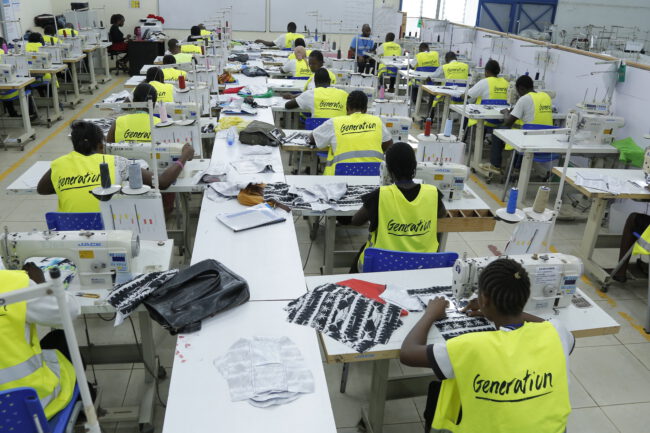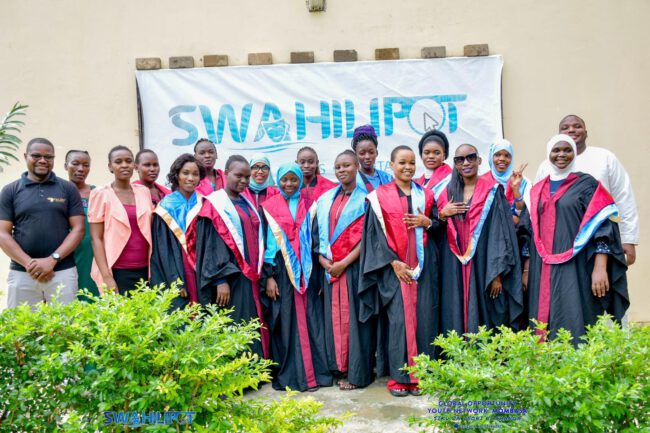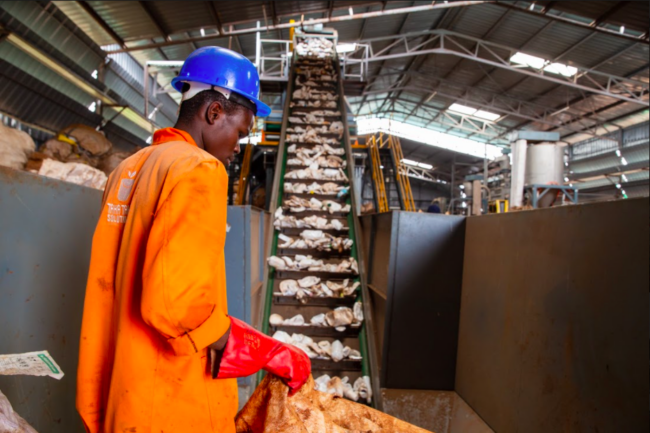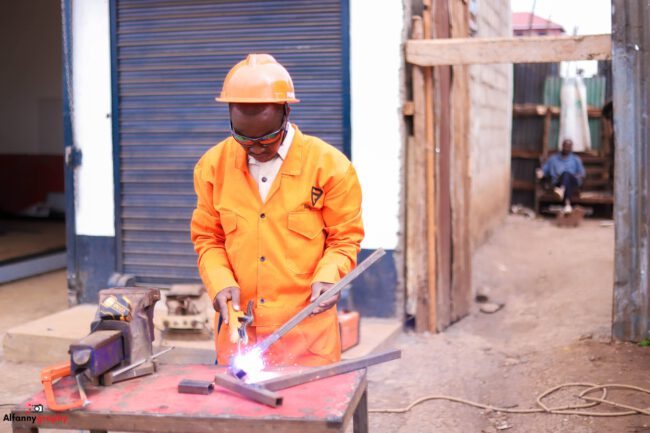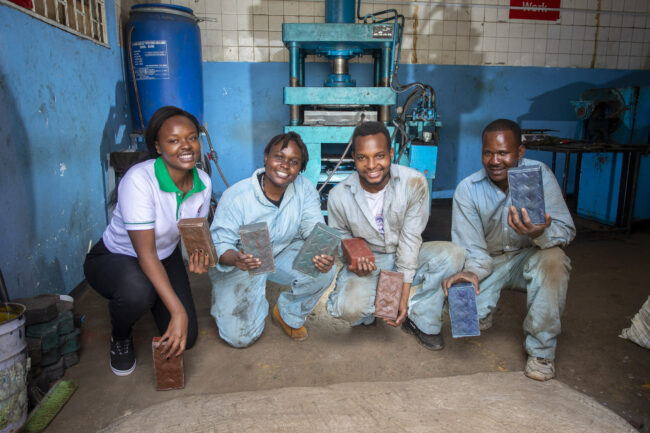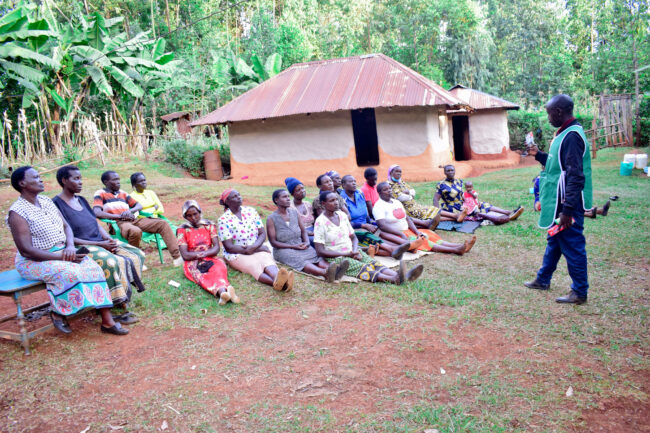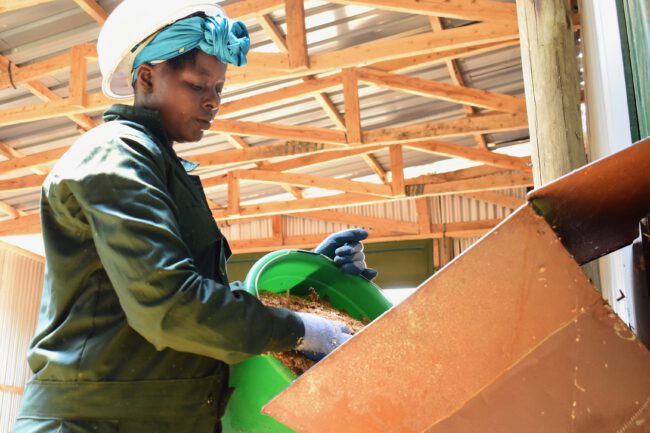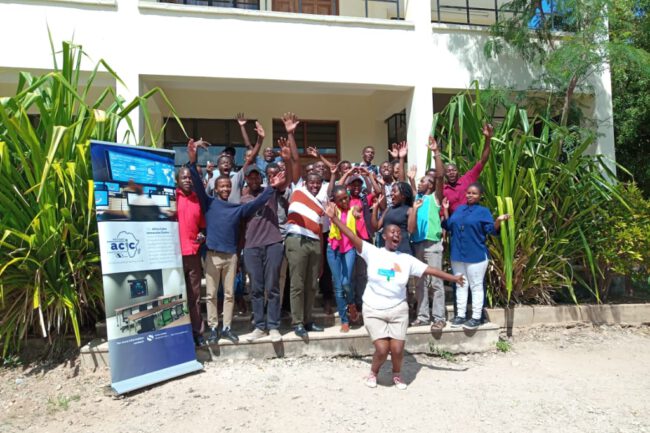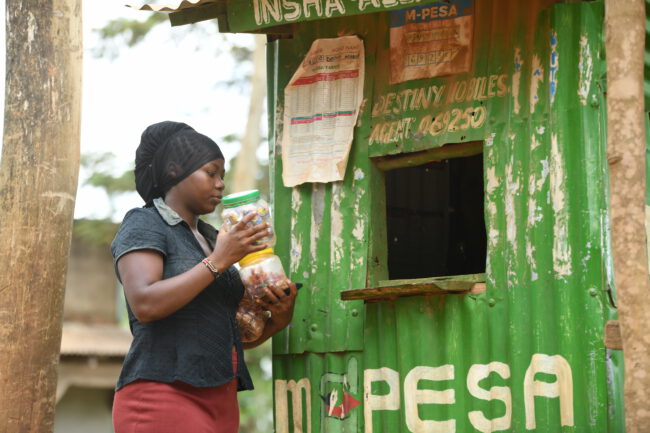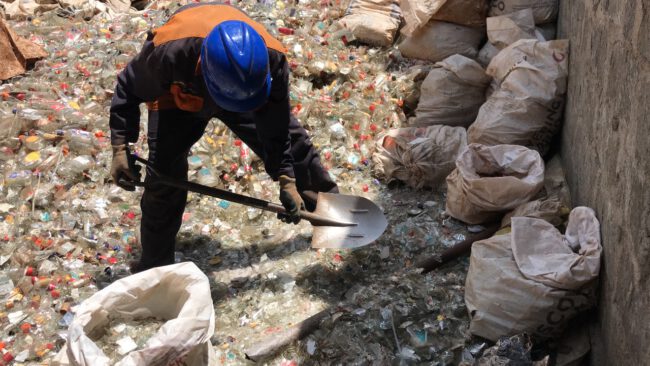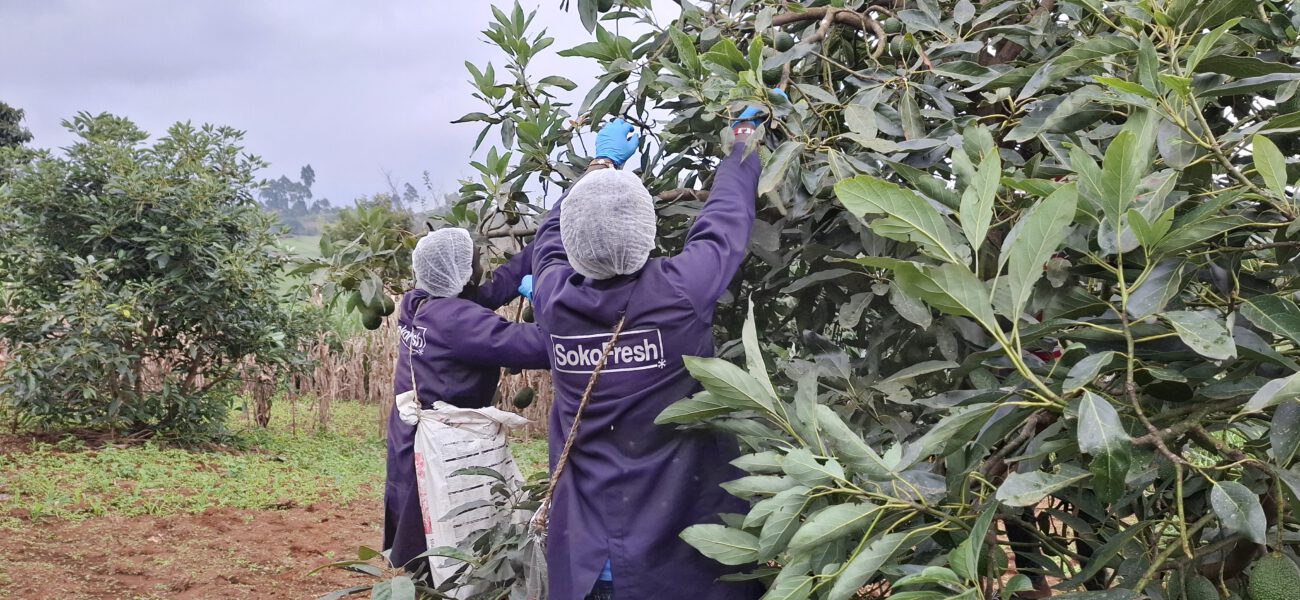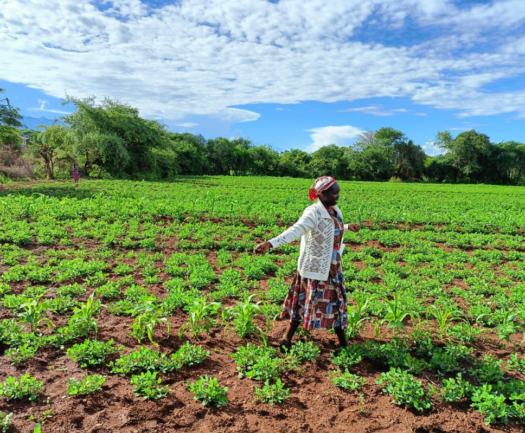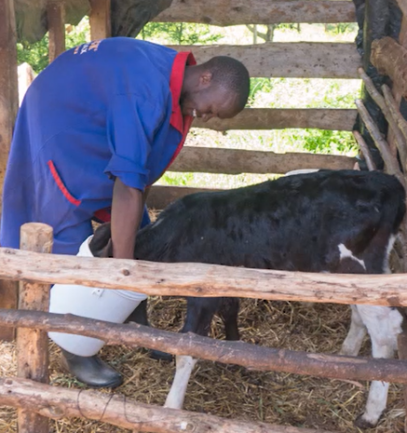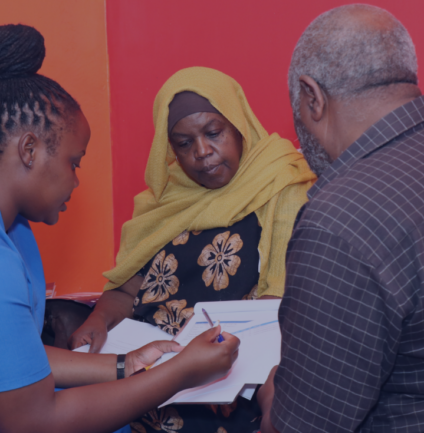Country Portfolio Kenya
CFYE launched the first Call for Solutions in Kenya in 2020. The Call invited businesses with innovative solutions to apply for the grant. Even though the Call was open for all sectors, we especially focused on business solutions falling under these two windows: Digital Business Development Services and Green Jobs. Following the success of the first Call, a second Call was launched in 2022. The call focused on the scaling up green jobs, Digital Business Development Services, and creative sector. The third and final call was launched in September 2023 with focus on green jobs, agri-business, renewable energy, e-processing, agro-logistics, and e-health sectors with the results being finalised.
The below portfolio includes only the winners from the first and second Call of Solutions. Beatrice Gichohi is the Country Lead for Kenya.
Kenya’s Job Market & Youth
In Kenya, youth (18-34) make up around 29% of the total population, 35% of whom are either unemployed or underemployed. The country’s economy is struggling to produce enough productive jobs for young people. It is estimated that the recent global economic recession and lockdown will further exacerbate the unemployment rate. Although the latter affects youth in different categories, urban youth face significant unemployment, ranging between 35% to 60%.
Youth in Kenya have diverse aspirations regarding the sectors they want to find employment in, including transport, manufacturing, agriculture, tech/digital, and the creative industry. Many young Kenyans also have great ambitions for participating in meaningful economic activities through self-employment.
The CFYE Youth Action Research conducted by Youth Champs in Kenya found that young people strive to find jobs that are compatible with their interests, provide security, opportunities for personal and professional development, and an inclusive work environment.
Most of the economic growth in Kenya is in the informal sector. Most new jobs created continue to be low productivity self-employed or informal wage jobs. SMEs in Kenya lack business skills and access to credit/funding or markets to grow their business. On top of this, government policies for starting a business are unfavorable, further discouraging many from becoming entrepreneurs.
We received many diverse initiatives in the first Call that presented innovative ideas for tackling youth unemployment. Witnessing the potential of the market and the strong youth ambitions for decent work, CFYE launched a second Call for Solutions in Kenya.
Our Impact
Our Portfolio in Kenya
Based on the unmet labour demand in Kenya, the youth’s aspirations, and the economy’s potential, we have developed a portfolio focusing on Digital Business Development Services and Green Jobs. Our portfolio in Kenya plans to accomplish more than 47.000 decent jobs for youth. Around 18.000 of these projected jobs will be created, while the others will either match youth to decent employment or improve the existing jobs.
Young Kenyan women face extra challenges in finding decent employment. Our partnerships with Kenyan private entities seek to eliminate these barriers. Therefore, young Kenyan women will occupy more than 18.000 of the planned jobs.
CFYE’s portfolio in Kenya consists of different sectors creating high-productivity jobs for youth. Our current portfolio is a mix of waged employment and self-employment initiatives in line with the aspirations of young Kenyans. The private entities we partner with bring innovative solutions to agriculture supply chains, cybersecurity, waste management, and many other industries, with one clear goal: to engage youth in meaningful employment.
With the help of the CFYE, we can help and support 400 SMEs to adopt technology within aa period of two years, which would otherwise not have been possible. Additionally, the help of CFYE will ignite a catalytic effect ensuring exponential growth in the employment opportunities over time. We aim to create 5000 jobs for youth in five years.
Our project Skills. Opportunities. Growth. Aims to enhance the livelihoods of underserved youth in a sustainable way. CFYE’s support will help us scale up our programs and increasing the numbers of young learners participating in these programs. Without CFYE support, it would take longer to build an economically sustainable model to support youth.
With the support of CFYE we will be able to run more collection centres and engage and reach more Kenyan youth and woman in formal and decent employment. In total, we will facilitate 1000 employment opportunities for young Kenyans in Kwale, Kilifi and Mombasa.
Our project, CO-CARE, is designed to fight unemployment in Kenya by creating employment for youth in the creative arts sector. With our project, we will create three creative hubs which will each host and employ 250 youth. The CFYE support will enable us to reach and support more youth in a more cost-efficient manner than we otherwise would have been able to do.
CFYE support is enabling our project, Creative Opportunities Mombasa, to reach its goal at a higher speed we otherwise would have been able to. It is helping us expand and create two to three times more jobs for Youth, especially for young women.
CFYE’s support will be crucial for TakaTaka Solutions’ expansion. The grant funding will make it possible to attract commercial funding, particularly integrate waste pickers into the waste value chain in an inclusive manner.
CFYE’s support will improve the program’s effectiveness and identify what works so that the model can be replicated and scaled in Kenya and beyond. The Fund’s expertise in decent work will help create meaningful and inclusive work in construction.
With the financial support of the CFYE, Healthy Entrepreneurs Kenya will be able to scale at maximum potential in the coming three years. The grant will also enable us (along with other co-funders) to further expand our model to 10 counties in Kenya.
CFYE’s funding and technical assistance will support MGA’s integration of collectors agents, AAPs, and consumers into a formalized plastic waste collection model and help us establish new partnerships with relevant product and service providers.
To unlock both commercial finance and public investment for replication, CFYE funding will be catalytic in helping Sanivation demonstrate the waste-to-energy factory at scale and streamline the partnership structure.
Without the CFYE funding, the project implementation would delay up to 6 years and less than 50% of the current job opportunities would be created. The technical assistance from CFYE will ensure that proper financial management is practiced throughout the project, and that the right policies to attract, hire and retain youth and women are implemented.
With the knowledge and funding from CFYE, SokoFresh will be able to scale up its project in Kenya and hire more women and youth, while decreasing food-waste and increasing salaries. More specifically, the CFYE support will enable an intentional shift from general employment efforts to a specific and targeted focus on creating jobs for youth and women. This plan is crucial for promoting gender inclusivity, ensuring women’s active participation, and mitigating existing disparities within the agricultural sector.
The CFYE grant and technical assistance will enable D&N to expand and solidify the already piloted sourcing model to include at least 1,121 new youth employment opportunities. The CFYE grant will provide agronomic support, training and recruitment, as well as the acquisition of shellers to mechanise the peanut production.
The CFYE grant and technical assistance play a pivotal role in enhancing the effectiveness and scope of the project. Without CFYE support, the project would face significant limitations in terms of design, speed of implementation, and outreach to the target youth population.
With the help of CFYE, CheckUps will be able to reach full potential for equity and social innovation. This strategic support will demonstrate a scalable care model sustaining youth livelihoods and unlocking health access for marginalized populations in Kenya. CFYE is the only entity that combines both funding and capabilities to tackle the intertwined priorities of youth healthcare job creation and equitable access at a community level. CFYE will provide valuable knowledge on youth and gender that equip the project to attract and retain their hiring targets.

